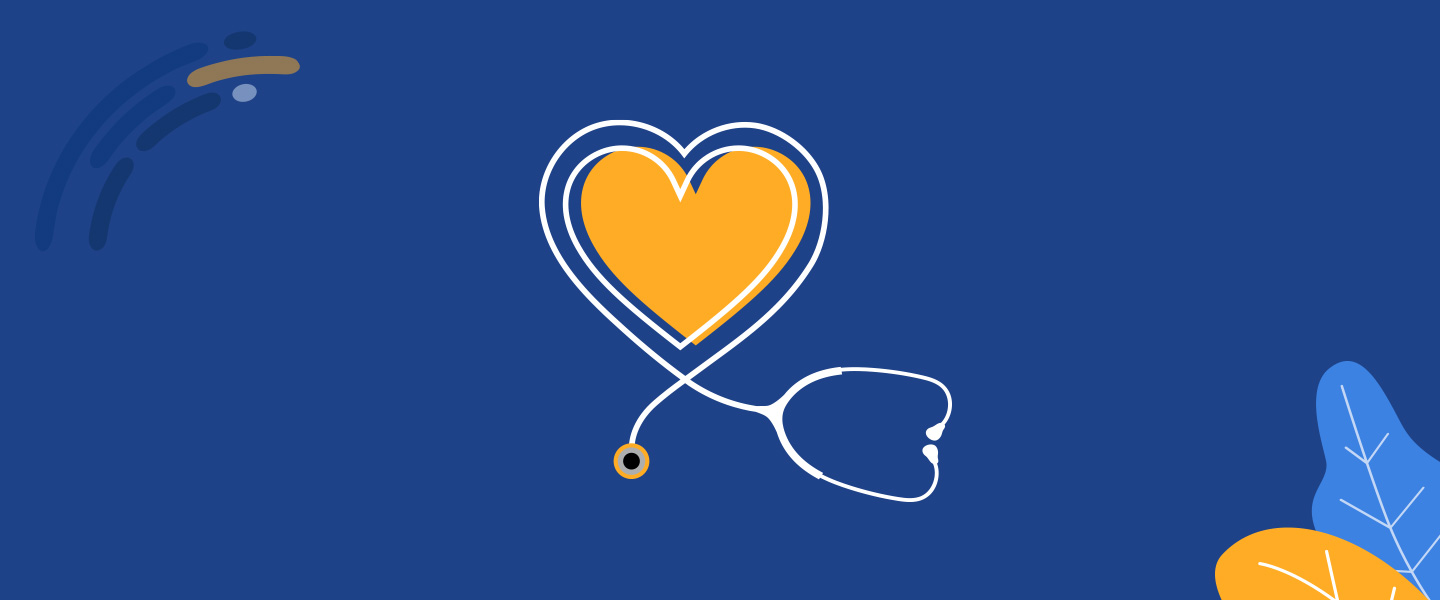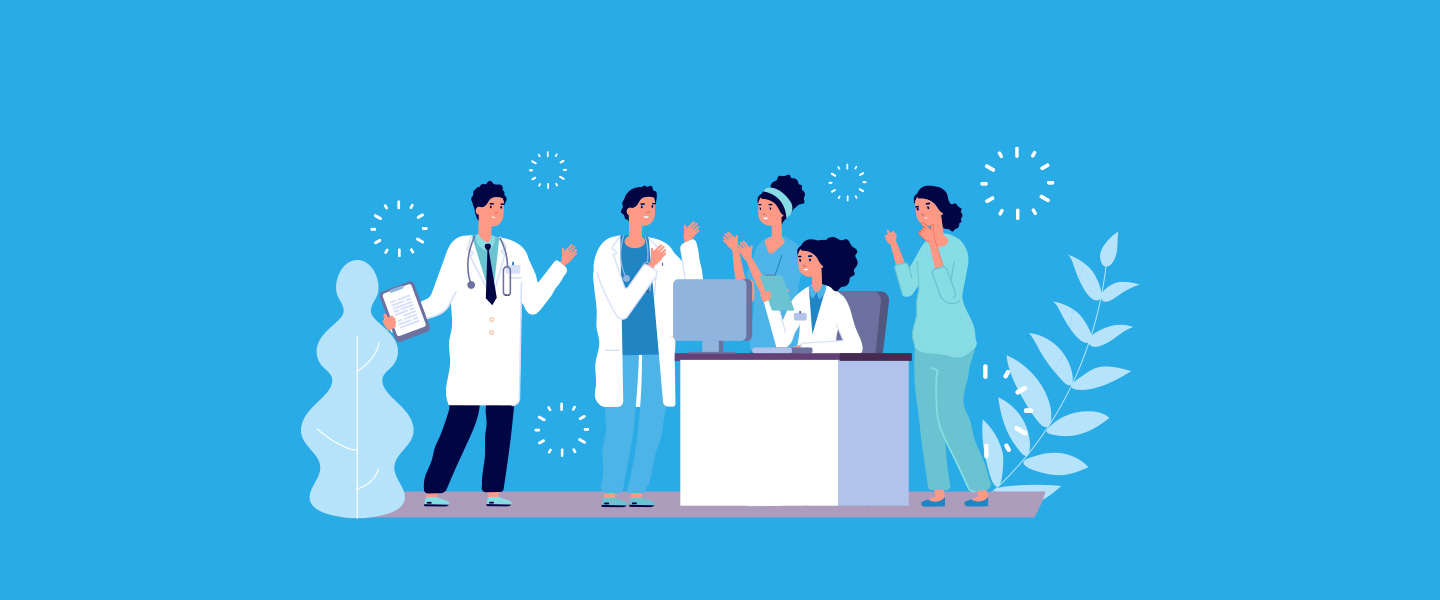In celebration of National Nurses Month, we pause to recognize the invaluable contributions of nurses in the healthcare ecosystem. Serving as the frontline heroes and guardians of patient well-being, nurses embody dedication, compassion, and expertise in every interaction.
At NantHealth, we are privileged to have a team of exceptional nurses among us, whose tireless commitment and unwavering passion elevate the standard of care every day. As we honor their vital role, we invite you to join us in a heartfelt dialogue, as our esteemed nurses share reflections on their remarkable careers and the profound impact they make in the lives of patients and colleagues alike.
ASHLEE COLE, RN, BSN, OCN
Director, Clinical Knowledge Management
LARELLE STONE, BSN, OCN
Senior Clinical Operations Nurse
KRISTI COX, RN, MSN, NP-C, AOCNP
Oncology Certified Nurse Practitioner
LAUREN WAGNER, RN, OCN
Clinical Support & Case Review Nurse
How did you get started in oncology nursing, and how did you first become interested?
ASHLEE: My mother was a nurse. She was diagnosed with breast cancer when I was a teenager and passed away when I was 21 years old. In my early years of nursing, I worked in long-term care (like she did) and I worked myself up to assistant director of nursing. I began missing the feeling of working directly with patients and decided to change my field of nursing to intensive care. I worked as an ICU nurse. That was some intense nursing and a great experience. Then, one day an oncology position fell into my lap and ironically the physician that had treated my mother all those years before worked in the practice. So, I followed in my mother’s footsteps to become a nurse, and ironically her legacy as a cancer patient led me into the field of oncology where I have been ever since.
LARELLE: Like so many people, my first experience with oncology was having a close relative with a cancer diagnosis. Later I was given the opportunity to volunteer with hospice services as part of the Katie Koala program. It gave me the opportunity to give back and support others with cancer and their loved ones. I saw how even in tough times people can shine with strength, grace, and love. I feel my life has been enriched by the lessons shown to me by patients and their loved ones.
KRISTI: When I was in nursing school at UTHealth in Houston, I completed a rotation at Texas Children’s Hospital (TCH) in the Hematology & Oncology unit and fell in love with oncology nursing! I started working there right out of nursing school and after about 5 years I decided to go back to Nurse practitioner (NP) school. During NP school my mom was diagnosed with breast cancer and was treated with chemo and radiation. She had an amazing team caring for her, but the person who stood out the most was her NP, Mari. She was the most amazing, smart, caring, and compassionate NP, and she was exactly the type of NP I wanted to be when I graduated. Once I graduated from NP school, I made the transition into the adult oncology world, and I loved it just as much!
LAUREN: I became interested in oncology while I was still in my nursing program. I had several clinical rotations in the Medical Oncology Unit and did my 2nd semester Internship there as well. I was so impressed with the knowledge of the experienced nurses I was able to work with as well as how caring they were. I just felt like it was where I was supposed to be. While I have been very fortunate to have had many diverse roles in my 16 years as a Registered Nurse, they have all been in oncology.
What is the most rewarding part of your job?
ASHLEE: The most rewarding part of my job is feeling impactful and that I make a difference in the lives of patients.
LARELLE: Feeling like I am part of a team making sure the patient gets the best care possible for the best outcome possible. It is at the heart of my job to be a dedicated layer of support for the clinician, the payor, and the patient by being part of an accessible comprehensive cancer resource with the goal of affordable high-quality care.
KRISTI: When I was in practice, I loved getting to know the patients and their families, since you typically see patients regularly while they are going through treatment. Obviously, the most rewarding part of that is seeing patients successfully beat cancer. Now, even though I am not physically seeing patients in clinic anymore, I still feel rewarded in that I can indirectly impact the treatment they receive, which can ultimately impact their longevity. Often, we find discrepancies in the treatments prescribed, whether that is an incorrect dose, a wrong treatment, or even unnecessary treatments that could cause life-changing toxicities. Knowing I did my very best to ensure that each patient is getting the most appropriate treatment for their diagnosis is very rewarding as I feel that I am directly impacting that patient’s life, just as I did in clinic.
LAUREN: I would have to say being a patient advocate is the most rewarding part of being a nurse. In my current role as a CSCRN, I do this by being part of the treatment plan review process to ensure patients are getting the best evidence-based care for their specific type of cancer.
If you could wave a magic wand, what would you most like to see changed in healthcare?
ASHLEE: I would love to see greater access to good healthcare for people. Unfortunately, the cost of healthcare is so high and often unaffordable.
LARELLE: High quality, accessible care without the extra burden of financial toxicity.
KRISTI: Obviously, the cost of cancer treatments can be astronomical, so making it more reasonable, where everyone can afford to be treated would be amazing in an ideal world.
LAUREN: Overall improvement in the continuity of care oncology patients receive through better communication, education, and support. Being diagnosed with cancer is a frightening reality for many and requires navigation through complex diagnosis, testing and treatment options. Nurse Navigators play a vital role in this by being the main contact for patients through this journey.
How do you keep up with all the changes in oncology?
ASHLEE: Oncology is a constantly evolving field. My job on the content team allows me to stay on top of current changes by consistently reviewing NCCN and FDA changes and updates.
LARELLE: Who can keep up? The rapid and constant changes in oncology and treatments are awe inspiring. To try to keep on top of the most current evidence-based knowledge, I use all resources available to me daily. This includes a combination of my awesome co-workers, harnessing technology, and participating in continuing education programs.
KRISTI: By reading CONSTANTLY! Oncology is ever changing with advances being made frequently. Thankfully, we have a website to guide us (NCCN) on which treatments are standard for the most common types of cancer.
LAUREN: Through oncology nursing educational opportunities and maintaining my Oncology Certification through ONCC. In my current role as a CSCRN, I am routinely exposed to updates on new FDA approved medications and Evidenced Based treatment regimens through participation in our weekly Grand Rounds.
Why are nurses so critical in healthcare?
ASHLEE: Nurses are the backbone of healthcare. Often, they are a direct link between the patient and all other interdisciplinarians. Nurses are essential for providing holistic care to patients while acting as their advocate. Nurses wear many hats in their role, and each task plays an important part in ensuring the best patient outcomes with the greatest patient satisfaction.
LARELLE: We are often on the front line of patient care. Nurses are advocates and leaders using both our hearts and our minds to make connections with patients and educating them to empower their ability to make informed choices. We collaborate with all team members to achieve continuity goals. Nurses are leaders in creating changes to improve healthcare outcomes.
KRISTI: Nurses are so critical in healthcare because they always have a direct impact on patient’s care. We are trained to be patient advocates, and this is especially true for patients who cannot advocate for themselves…whether that be at the hospital bedside, in an infusion center, at a clinic, or right here at NantHealth! Nursing is truly a work of “heart” and here at NantHealth, we have some of the best nurses out there striving to ensure that every one of our patients receives the RIGHT treatment, every time. I feel so lucky to be a part of such an amazing team!
LAUREN: Nurses are so vital in healthcare as they not only diagnose and treat illness but also play a major role in the prevention of disease and promotion of wellness through education and advocacy for individuals as well as whole populations. The nursing profession is often referred to as the art and science of caring, meaning it requires both specific scientific knowledge as well as compassion all while providing the best and safest care.







